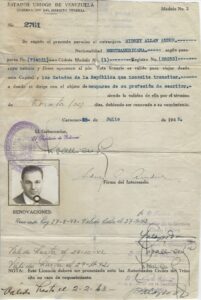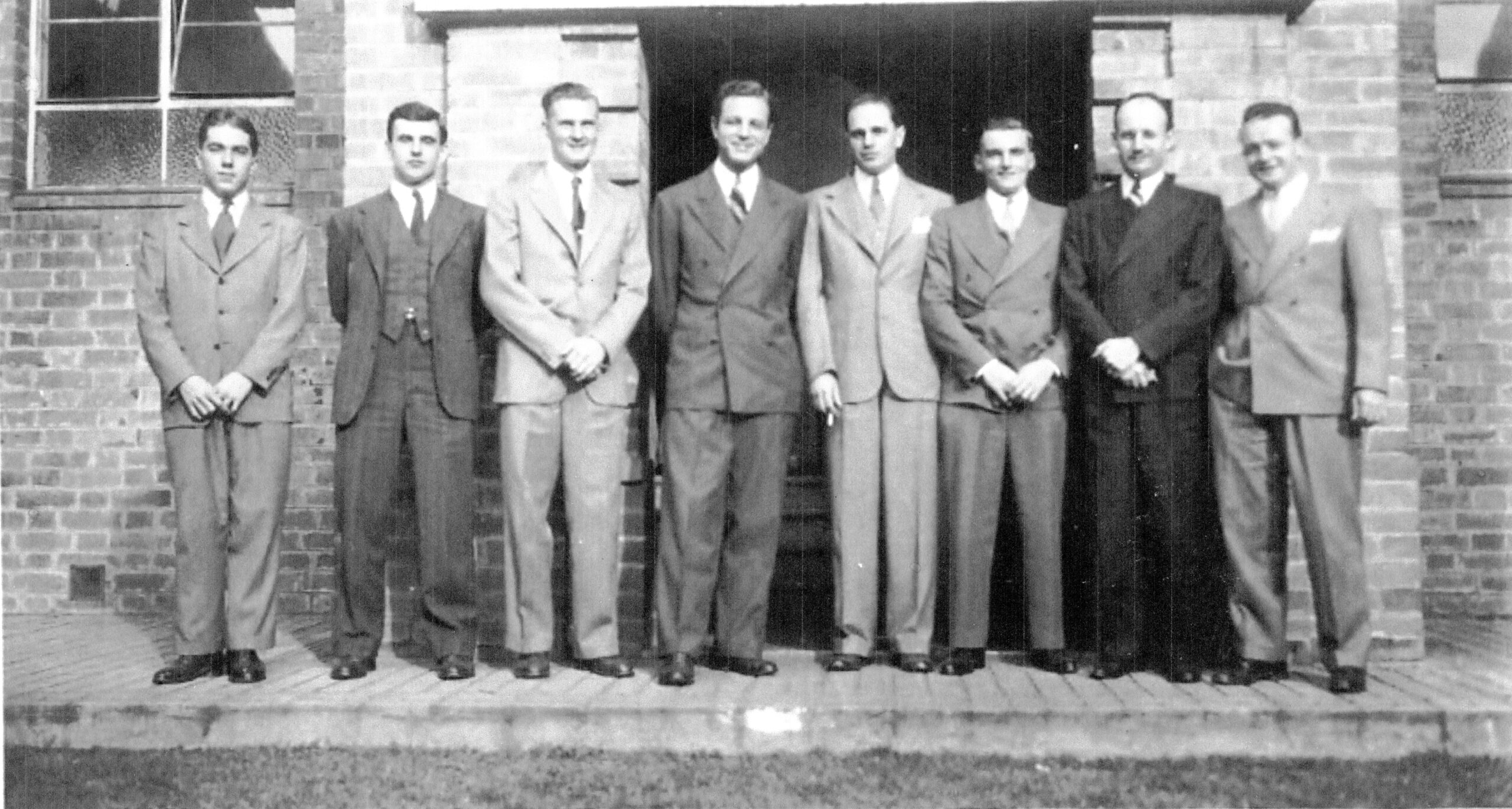When born in a static culture, one can largely follow in one’s parent’s footsteps. In such a world, barring invasion or changes to one’s environment, things are largely unchanged from generation to generation. One has seen one’s father and mother, one’s uncles and aunts, pass through each stage of life before you. From birth to death, one is guided all the way.
For those of us in dynamic cultures, however, we break new ground with every step. I am speaking in sweeping generalities, of course—each of us meets the world differently, even when embedded within an apparently unchanging world. On the other hand, even as the world changes around us, there we are, constant: men, women, desiring to birth and raise families, to create, to leave a legacy behind us so that, even after death, we live on. My father dodged horse-drawn ice wagons as a boy, and on this day that I started this essay, we wondered if debris from a Chinese rocket, in uncontrolled free-fall, will fall upon our heads.
My father was forty-one years old when I was born. As a young man, he achieved his dream of being a lawyer. However, he was an idealist, and couldn’t tolerate the compromises he had to make, particularly in regards to truth, in order to function within the American legal system. After the 2nd world war, his father invited him to join him in the family business, and that was intolerable in other ways. He soon quit, and worked for the rest of his life honorably, doing a job he did not like, to ensure that his family would live well and safely. He practiced little law, mostly pro bono, and mostly provided information on real estate transactions for businesses (a rudimentary version of what Google and Facebook provide to customers today)
In between those two periods, he was a spy.
There was a time, believe it or not, that the Federal Bureau of Investigation (FBI) had an image, held by most American citizens, of honesty and integrity. They captured a number of gangs of bank robbers, and some outlaws, such as John Dillinger, were killed in shoot-outs. To be sure, this image was, in part, a brilliantly crafted public relations scheme—the FBI’s depredations against the political left, far beyond the truly dangerous communists and anarchists whom they should have been investigating, as well as Director J. Edgar Hoover’s denial of the existence of organized crime, reveal the agency to have been far less pristine and honorable that the public believed. Nonetheless, my father, looking for moral absolutes that he did not find in his legal practice, joined the FBI in 1940. This was perhaps the FBI’s finest hour, as their main focus became the detection of Nazi spies.
My father, in part because of his fluency in Spanish, was included in a new unit, the Special Intelligence Service (SIS). According to legal statute, the FBI was to confine its law enforcement activities within the continental United States. At the same time, America was in mortal danger, and had no espionage service. Military intelligence was rudimentary and obtuse. The Office of Strategic Services (OSS), later to become the Central Intelligence Agency, was not formed until 1942, and their activities were mostly in Europe. At any rate, the function of the OSS was actually closer to that of the modern-day Special Forces of the Army—to embed themselves in support of resistance movements against the Germans and the Italians. And there was no possibility of inserting intelligence agents into Japan itself—any intelligence activities were carried out at a distance by branches of the military.
Espionage was also necessary in South and Central America. Some countries leaned towards the Axis powers, and Nazi agents were present in large numbers. The SIS, quite illegally, was sent to many of these countries. What did they do? They gathered information in the classical manner, some worked as liaisons and advisors with police agencies in friendly countries, and perhaps they went far beyond that. One reads obscure references in FBI files about rolling up or capturing a network of Nazi agents. I once received a letter from a former SIS agent who wrote: “I did not know your father. But if he was in Venezuela in 1942, he was surely involved in the Emerald Caper, where special agents neutralized a plot by Nazi agents to corner the emerald market to finance their nefarious aims in the United States.” I have always been charmed by that note, as it brings to mind such romantic stories as Reilly: Ace of Spies. But what does it mean to ‘roll up’ or ‘neutralize?’
For most of my life, I wondered who my father was then. When I was a child, he told a few stories of picaresque amusing adventures [I wrote about some of these stories in a chapter of Dueling with O-sensei]. When I became a young man, we were seriously at odds, and thus, although I was old enough for more serious talk, we weren’t in a position to do so. We reconciled when I was twenty, but this was shortly before his death, and then we spoke of other things. As I have not walked his path, I have often asked, “Who was my father, when he lived having nothing to lose, but his life and his honor.”
Several weeks ago, I found a copy of a letter bundled among others in a box of my parents’ correspondence. It was written on April 16th, 1952, about three weeks after my birth. It concerned the strange case of Aldo Icardi, an OSS agent, accused of the murder of his superior officer Major William V. Holohan in Italy in 1944. Rather than recapitulate the case, I will simply link to the Wikipedia article here. The issue that concerned my father was not the alleged murder; rather, it was the demand of Italy, our recent enemy, to have Icardi extradited to stand trial for the murder in an Italian court.
April 16, 1952
Dear Sir:
. . . The prevailing thought in the newspapers seems to be—if these men are guilty, how can they be kept from getting away with it? However, even more important is the thought—if they are innocent, should the United States help in delivering its soldiers into the hands of our former enemies?
As a former Special Agent of the FBI, who served outside the United States, I now become aware that trumped up charges could be brought against me. Despite the romantic aura which surrounds an ‘intelligence agent,’ of our own country, every nation hates a ‘spy’ from another country. Pursuant to his duty, the intelligence agent is prepared to break the laws of another country even if we are at peace with it. Just as a firefighter puts on an asbestos suit, the agent cloaks himself in a protection of temporary, self-justifying immorality, which he doffs on reaching the security and restrictions of his own land. His entry is by stealth or perjury; he is ready to commit bribery, burglary, assault and almost any crime in the defense of himself and of his country—and all the time, he knows that, if apprehended, his land to which he has dedicated himself, will indignantly disclaim him, for the safety of his country is more important than the safety of any individual. At home, he is a patriot, but abroad, he is a sneak, a thief and a liar—and so, he is hated. Peace and reconciliation may come to the warring countries but the intelligence agent is never forgiven. That is why Icardi, even though he may be innocent, must be fearful of being returned to Italy. I and my fellow agents were volunteers, but in the light of the possibilities of this case, I would hesitate now to volunteer. Then, I was ready to take my changes temporarily with other countries, but now, I would be afraid of my own. . . . If we extradite these men, it is a precedent for future bartering’s of our natural rights by treaty . . . Not only does the soldier have the duty to protect his country; his country has a like duty to the soldier. Icardi isn’t the issue. If he is guilty, I hope his soul rots in hell. But I believe we are hurting our military morale by this jeopardy. Where a fundamental liberty is endangered, none of us is an outsider.
I wondered who my father was then: Now I know a little better.
Purchase Books By Ellis Amdur Here
NOTE: IF ANY OF THE READERS HERE FIND THEMSELVES GRATEFUL FOR ACCESS TO THE INFORMATION IN MY ESSAYS, AS WELL AS THOSE OF MY GUESTS, YOU CAN EXPRESS YOUR THANKS IN A WAY THAT WOULD BE HELPFUL TO ME IN TURN. IF YOU HAVE EVER PURCHASED ANY OF MY BOOKS, PLEASE WRITE A REVIEW – THE OPTION IS THERE ON AMAZON, AS WELL AS GOODREADS, KOBO OR IBOOK.



Keni Lynch
Thanks for sharing this touching story about your dad. As I started reading your article, I looked up the status of the Chinese space debris that was said to land somewhere near or on New Zealand where I live. As luck would have it, the debris landed harmlessly in the ocean near the Maldives. Still, the irresponsibility had me shaking with anger. It’s nice to be reminded that there were, once upon a time, unsung heroes who lived with principles and who deserve the honor conferred upon them. You’ve made us realize one of them was your dad. You write well and, although I disagree with you sometimes, I am very grateful for your gift. We are all in debt to your father for his integrity and love of freedom.